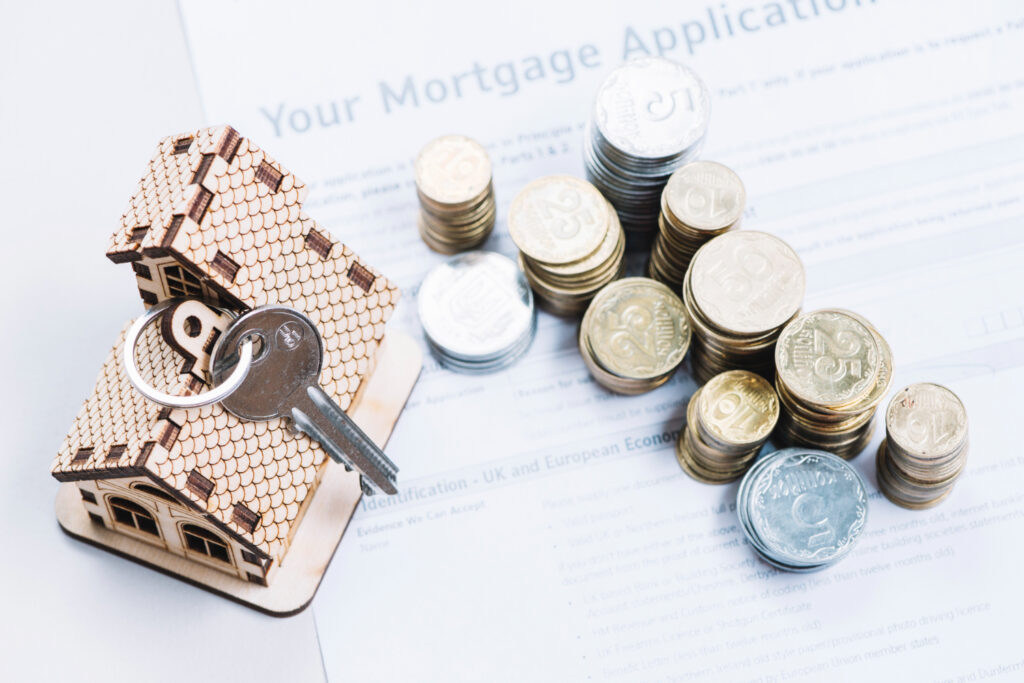Mortgage Loan Interests Can be Lower Than You Think: Top Questions to Ask Before Getting a Mortgage
by Ankita Tripathy Loans & Credit 07 January 2025

There are tons of questions to ask mortgage lender before buying a home. It is easily one of the most critical decisions that affect anyone’s life. For most, securing a mortgage is the only way of making that dream a reality.
But jumping into a mortgage process without knowing the nitty-gritty can lead to unexpected expenses, stress, or even reckless financial choices. The latest survey revealed that almost 50% of young (18 to 35) home buyers feel unprepared when taking a mortgage loan. Often due to a lack of knowledge about terms, costs, and requirements.
If you’re gearing up for your mortgage loan for the first time, learn the questions to ask mortgage lender first. It can help you avoid common pitfalls and make confident decisions.
What Type of Mortgage Is Best for Your Needs?

Choosing the right lender or a low-interest scheme is not all that matters. You must select a plan that is compatible with your financial status. Choose a plan that suits your lifestyle, too.
You may go for fixed-rate mortgages that offer stable rates. You will also get a fixed monthly repayment plan, on choosing it. However, adjustable-rate mortgages offer a low repayment rate in the initial period after taking the loan. As time passes, the rate will increase.
When the time comes, you may refinance the loan again. By doing so, you may keep the interest rate under check. After refinancing, the rate will be low once again. However, the length of your repayment tenure will increase. So, there are many questions to ask mortgage lenders before you are fixated on a scheme.
Thirdly, you may also choose the specialized loan packages. These are FHA, VA, or USDA loans. If you buy a home for the first time, one of these specialized schemes may be for you. Even people in tier 3 cities and rural towns can benefit from the schemes.
If you want an article on which mortgage scheme is the best for you, ping me in the comment box. I’ll be quick to follow up.
Do You Know the Total Cost Beyond Monthly Payments?

There are 4 prime components of any mortgage loan. If you are unsure, it is one of the questions to ask a mortgage lender. The first is principle, followed by interest, taxes, and insurance upon the repayment. Lenders often won’t discuss property tax, owner’s, and mortgage insurance. But these are real cist enhancers that might trouble you later.
I suggest using a mortgage calculator to determine how much you must pay monthly. Add more questions to ask mortgage lenders, starting with how to make a detailed breakdown of costs. Anyhow, ensure you are not taken aback by surprise costs later.
How Much Can You Borrow Based on Your Financial Profile?
The amount you can borrow depends on income, credit score, and other factors. Buyt the lenders use these metrics and tell you the sum at the end. I suggest you don’t fall in the trap. Instead, ask for a break-up. Learn all the integral questions to ask lenders about your mortgage and the repayment breakdown.
Things are good when you have a decent credit score.
Your ability to borrow depends on factors like your income and credit score. Lenders use these metrics to determine how much they’re willing to lend, but they may approve more than you can comfortably afford. A high credit score opens the door to better rates, while a manageable DTI ratio signals that you can handle monthly payments.
Before applying, review your credit report for errors and consider paying down existing debts. Knowing where you stand financially helps you set realistic expectations and avoid overextending yourself.
What Is the Interest Rate and Why Does the APR Matter?
What matters the most is your mortgage loan interest rate. It’s the only thing that matters the most. The APR blends the statutory interest rate and any other additional costs. For example, lender fees. But beware of the break-up.
If the interest rate is low but fees are comparatively higher, its end costs may be higher than you presume. On the other hand, a loan with a higher rate and considerably lower fees may end up charging you comparatively lower.
So, your prime motive should be comparing the APRs of various lenders. It will firstly help you to fathom the overall borrowing cost. The bottom line- do not hesitate to ask for the rate or the metrics used in calculating the rates. Also, ask if the lender charges a fixed or variable rate.
How Much Should You Save for the Down Payment?
Your down payment amount is reversely proportional to the mortgage clauses. If you can pay up to 20% upfront, it will bail out your private mortgage insurance. Moreover, your monthly payments will be low as well.
However, some loans come with a minimal 3% down payment. In that case, your interest rate would be higher and your additional costs would also be high. Meanwhile, don’t forget to save enough for any contingency after closure.
For the same, you must pick the questions to ask mortgage lender carefully. Remember, your aim should be to balance stable financial security for the long term and your current affordability.
What Are the Closing Costs, and Who Will Cover Them?
Your closing costs could be an enormous burden. That’s why one of the questions to ask mortgage lender is, “What are my closing costs, and how are you calculating it?”
But the closing costs don’t catch your eye till the end. At the final stage of your loan payout, it dawns upon you that your closing costs remain unpaid. And guess what? It is not any paltry amount.
It might be as high as 5% of the whole loan volume. At the same time, it may include fees like appraisals and legal service charges, title search prices, and more.
I would advise borrowers questions to ask mortgage lenders on that note. You may ask the lender for an itemized estimate much in advance. At the same time, you may grab sellers who will cover this cost partially.
However, the cost-sharing is bargainable. It depends on the particulars of your transaction. The bottom line- you must understand who will pay for what. It will also help you avoid surprises during loan closures.
What Are Your Options for Lowering Monthly Payments?
Lowering monthly mortgage payments isn’t just about choosing a smaller loan amount. There are several strategies to explore. Opting for a longer loan term, like a 30-year mortgage instead of a 15-year one, can reduce payments, though it may result in paying more interest over time.
You might also consider buying mortgage points, which involve paying extra upfront to secure a lower interest rate. Additionally, improving your credit score before applying can lead to better terms and lower payments. Don’t hesitate to ask your lender for advice tailored to your financial situation.
What Happens If You Miss a Payment?
Missing a mortgage payment can have serious consequences, so it’s vital to understand your options if this happens. Most lenders have a grace period, typically around 15 days, before they report the missed payment to credit bureaus.
After 30 days, however, your credit score could take a significant hit. Prolonged non-payment may lead to foreclosure. If you anticipate difficulties, communicate with your lender immediately.
Many offer temporary forbearance programs or loan modifications to help borrowers in financial trouble. Knowing these policies upfront can provide peace of mind.
Can You Refinance Later for Better Terms?
Refinancing your mortgage is a popular way to secure better terms, such as a lower interest rate, shorter loan term, or reduced monthly payments.
However, it’s not free—refinancing comes with costs, including application fees, closing costs, and potentially resetting your loan term. Ask your lender if there are any restrictions or penalties for refinancing. Timing is also essential.
Waiting until your credit score improves or market rates drop can make refinancing more advantageous. A suitable lender will guide you through the process and help you decide if and when refinancing makes sense.
The Final Take
There are many valid questions to ask mortgage lenders before you close the deal with someone you encounter early. Once you decide, it will have a long-term effect on your finances. So, ask the right questions and understand the counters you may do, when choosing your financier.
Try to avoid any costly mistakes. Most importantly, select the loan that suits your budget and your lifestyle. Firstly, check your total expenses. Then, find unique ways to reduce costs and gear up for refinancing if needed.
Take your time, compare lenders, and don’t hesitate to seek advice from trusted professionals. With the proper preparation, you can confidently navigate the mortgage process and take the first step toward owning your dream home.
Read More:



































































































